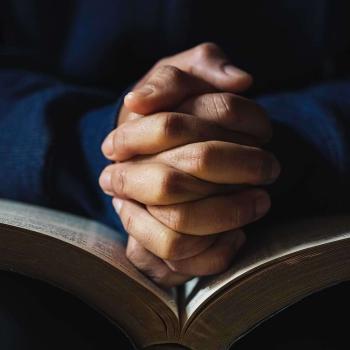The result of this dynamic, inter-dependent ongoing creation is an often unpredictable, messy world, vulnerable to the reality of suffering and death. "Natural" (or morally neutral) suffering, such as that caused by tsunamis, tornadoes, and earthquakes, is regularly intensified through the interplay and dynamics of human, moral evil. When societies show little or no concern for the poor who live—often en masse—in poorly engineered and inadequately structured shelters, a natural disaster such as a earthquake or tsunami can have tragically devastating effects. (For a compelling exposition of this point, see Jon Sobrino's Where is God? Earthquake, Terrorism, Barbarity and Hope.)
Economic disparity may help explain the difference in the scope of devastation and loss of life between natural disasters in majority-world (or developing world) contexts and those in industrialized, first-world societies. Countless people are vulnerable to disasters of unfathomably tragic proportions simply because they are poor. Of course, prosperity and technology does not rule out immeasurably tragic suffering, either. For this we need only witness the potential of widespread, devastating consequences due to Japan's potential nuclear disaster.
There is an important theological consideration here that should be made explicit. Many Arminian-leaning theologians who have been existentially and theologically disturbed by the problem of evil and suffering have felt it necessary to deny God's foreknowledge of future events in order to maintain genuine freedom and to absolve God of responsibility for the world's suffering. Both Fretheim and Polkinghorne, for example, are "open theists" who hold that a truly open future implies that there can be (logically speaking) no prior knowledge of it—even by God.
But it's not necessary to take this route. A classical Arminian can counter that God's foreknowledge of the future doesn't imply causality of it. Just because God may have known what is going to happen doesn't necessitate that he caused, determined, or ordained it. There is no necessary causal link between foreknowledge of an event and the event itself. Of course, one can still ask why, if God knew, didn't he intervene? Assuming God knew that Japan was going to be engulfed, couldn't he have intervened? Why then didn't he? Or on a grander scale, if God knew that the world he would create would contain tsunamis and earthquakes, why didn't he take a different approach? Why not put limits on natural suffering more than he apparently has?
Surely at one level we can grant that God could have intervened. Indeed, who knows how often—and in what manner—God does intervene? Perhaps he could have miraculously prevented the earthquake in the first place or suppressed the waters afterward. But would he do this every time? If so, why? On what basis would we expect these judgments to be made? By what criterion? That God would never allow us to experience difficulty and tragedy and death? That would certainly be a very different world than the one we currently inhabit. Our hope lies in God's promise to restore, renew, or altogether recreate this world when he brings about the next. But it is reasonable to suppose that our present world, with its embedded freedom, mystery, and tragedy, provides occasions for faith in God, hope in his promises, and love for those he has created.
It is prudent to acknowledge the fact that the world we live in is at once dangerous and mysterious, beautiful and tragic. But we don't have to suppose, even in principle—and even if we are careful about not supplying divine motivations or intentions—that there is a particular, "meticulous" divine purpose for each and every tragedy. They are part of the world we live in. It's a beautiful world, but it's also a broken and fallen world, one that awaits its final liberation.





